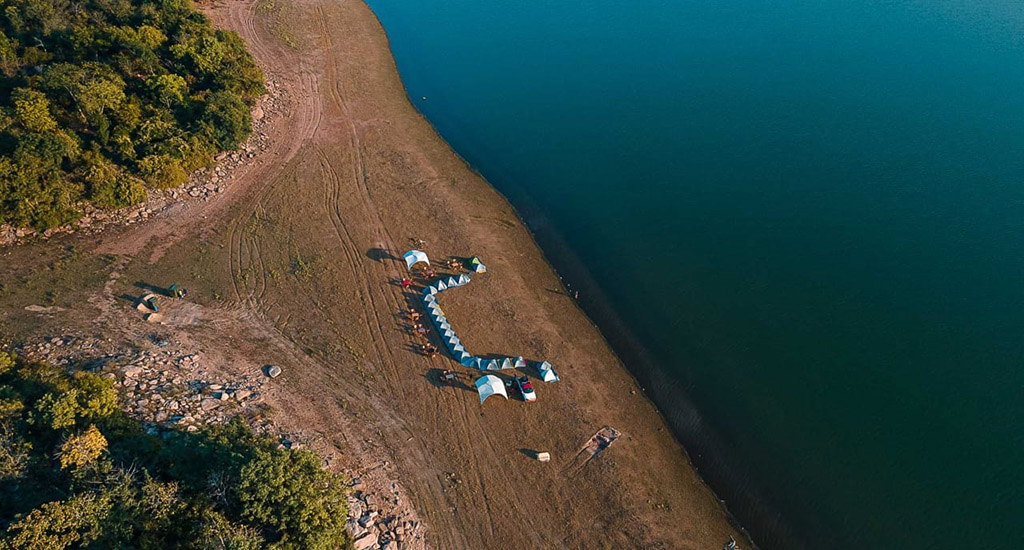
Rural youth turn to cool eco-tourism jobs in Chhattisgarh
Converted into an eco-tourism facility, the scenic spot near Kodar Dam in Chhattisgarh offers a perfect weekend get-away, while ensuring local employment for rural youth and better income.

Converted into an eco-tourism facility, the scenic spot near Kodar Dam in Chhattisgarh offers a perfect weekend get-away, while ensuring local employment for rural youth and better income.
With the sun slowly going down the horizon, the waters of the Kodar Dam turn a golden yellow. As daylight disappears the bankside turns magical with lanterns strung in trees, sparkling in the dark.
In the morning seasonal wildflowers and blooming roses greet you.
It is the perfect spot to pitch a tent and stay a few days.
But for those who don’t have a tent or know the first thing about cooking in a campsite, a new eco-tourism site does all the hard work.
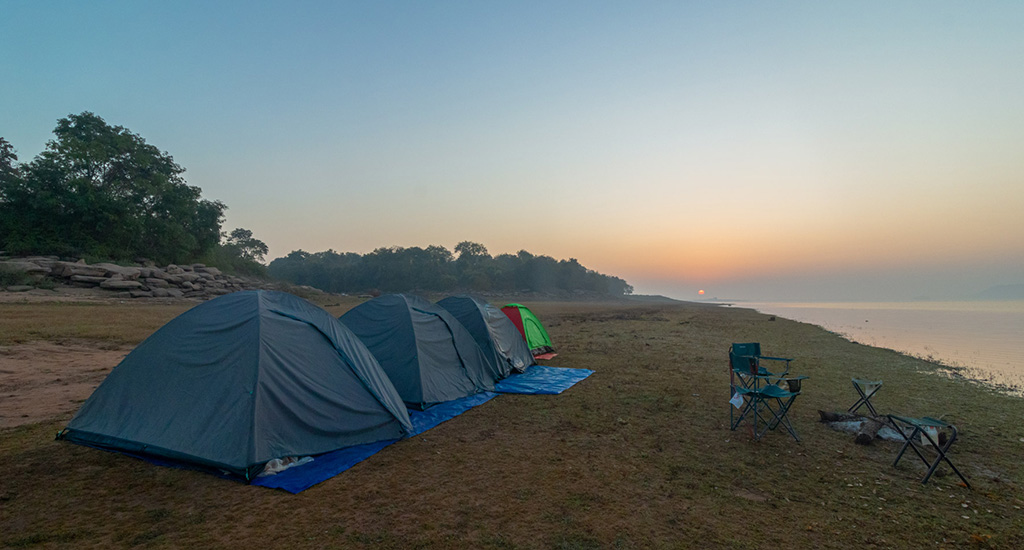
The Eco Camp Kodar campsite is more than just a nature retreat for urban Indians. The campsite is also providing a livelihood for a handful of tribal youth from the Kuhri village.
Kuhri – about 2km from the Kodar Dam campsite – is a mid-sized village where the colourful wall art of homes along a long narrow lane stand out.
Most of the Gond Adivasi people who live here are farmers. Each family owns a few acres of land in which they grow paddy.
But a few adventurous young men are supplementing their farming with ecotourism – a more lucrative endeavour.
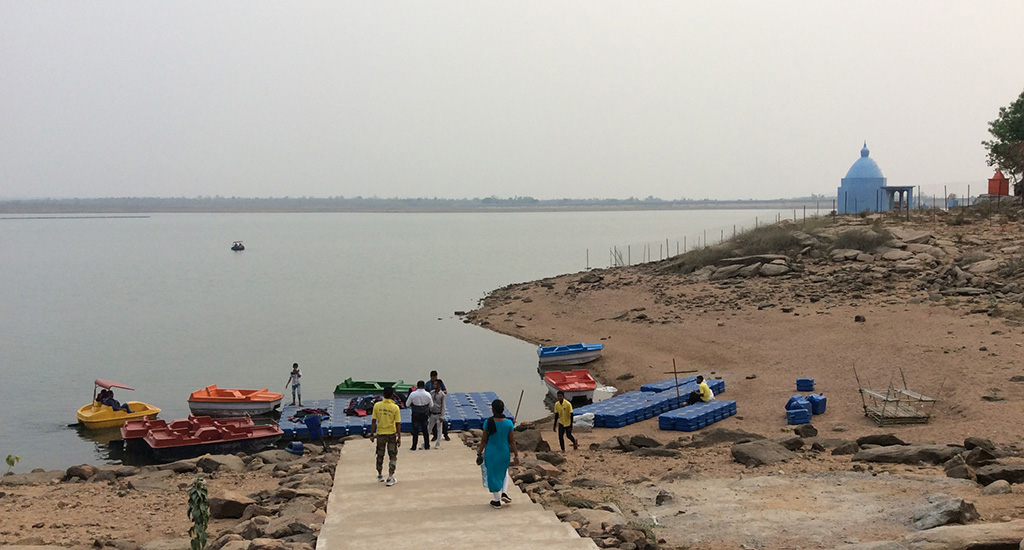
Van Chetna Kendra (forest sensitisation centre) was just launched in November last year as a joint initiative of the Mahasamund district administration and the forest department.
With 60 to 70 tents, costing a camper Rs 1,600 a night, and around 50 day-trippers coming to take boat rides, the eco site has already pulled in about Rs 14 lakh in six short months.
Sukhdev Sahu’s life changed after he attended a recruitment drive for the site last year.
Luckily for him, Sahu had gone to college. His degree worked in his favour as most rural youth don’t study beyond school. He was among the first to be selected.

Sporting an engaging smile, Sahu looks after the smooth running of the site, along with nine other young men from Kuhri. They see to the needs of the campers, run boat rides, hikes and prepare food for the guests.
“We ensure their safety, especially during boat rides. Wearing life jackets is compulsory,” said Kanhaiya Lal Nagesh, one of the youth running the place. (ALSO READ: Bhimshankar village makes the most of nature’s trail)
The Kodar dam site, known as Eco Camp Kodar, is an ideal weekend getaway, as it is just 70 km from the capital city Raipur.
Nearby there are tourist attractions like the Barnawapara Wildlife Sanctuary, and the archaeological heritage site of Sirpur.
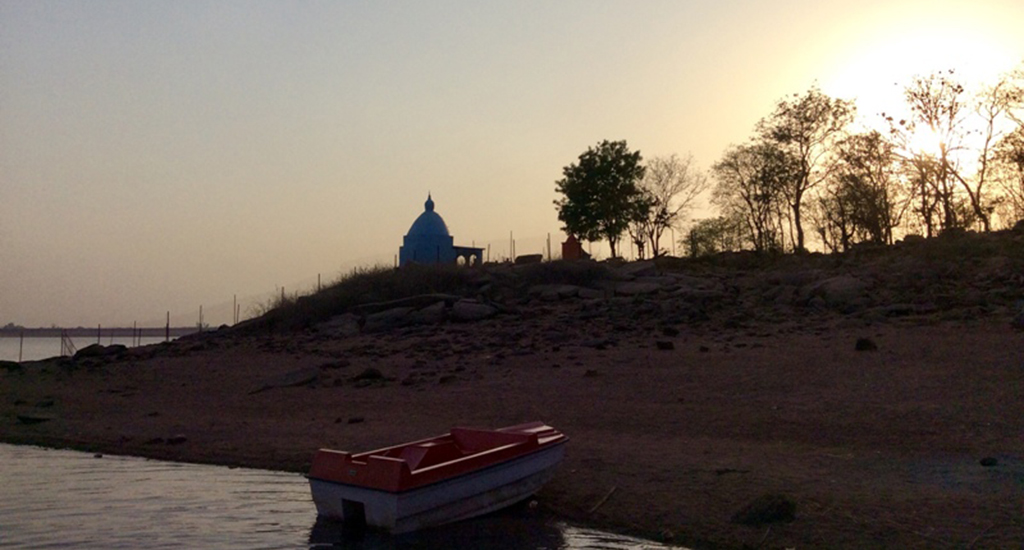
It has also become an important spot for bicycle rallies to Sirpur.
The Eco Camp Kodar offers relaxation, music, refreshment, stargazing and adventure.
“Most tourists enjoy the boat rides,” Nagesh told Village Square.
The Mor Chidiya drive was also launched here around the same time to protect sparrows by Mahasamund divisional forest officer Pankaj Rajput, also the man behind the Eco Camp Kodar concept.
With about 70 tents pitched along the dam in a row, weekend camping and bonfire are a huge draw.
While the youth are earning better compared to their previous jobs, there are other incentives too. (ALSO READ: Forget logging or hunting – two Assam villages embrace ecotourism)
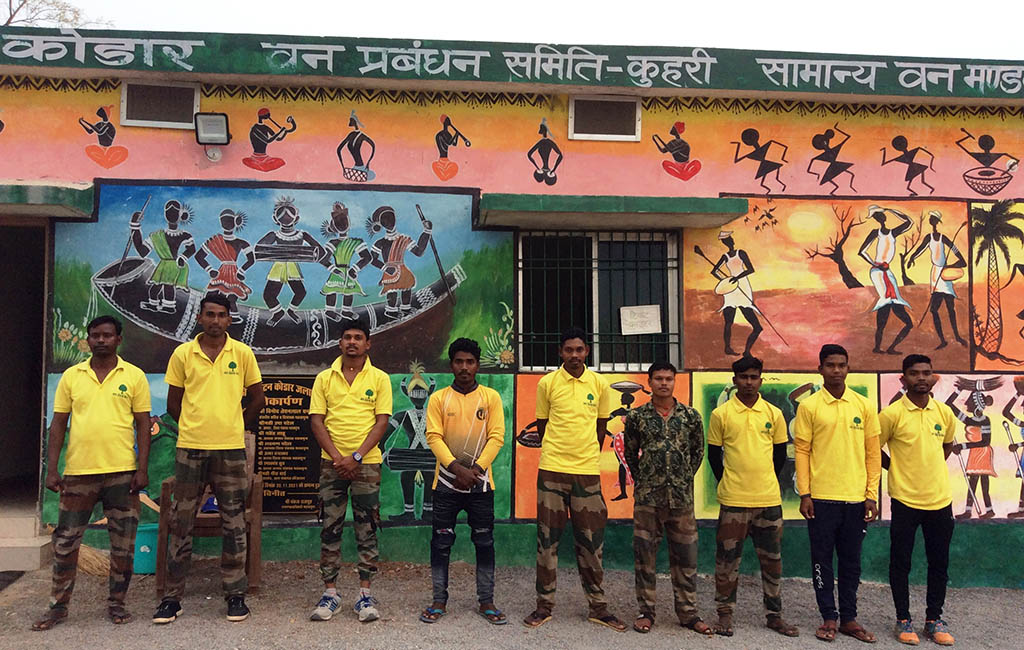
Earlier Sahu used to dig pits and plant saplings for a meagre salary.
“Monthly earnings from the Kodar camp are undoubtedly helping our families,” Sahu told Village Square.
From November till April, the centre earned about Rs 14 lakh from tourism.
“Out of that, we divided 50% among ourselves. The rest is deposited in a joint bank account,” said Sahu.
While issuing boat ride tickets, Shiv Kumar Dhruw expressed satisfaction of working close to home and earning a reasonable income.
“Eco tourism is catching up and Chhattisgarh has good potential. There are four to five more sites coming up in other districts,” said Raipur-based Rajesh Lohia, who helped design and set up the site.

But accessibility is a must for ecosites to be a success. Those near well-connected towns do well and thrive. While those off-the-beaten the track might offer more remote and beautiful experiences, they can be hard to sustain.
Either way, the more ecotourism grows the more young people will stay in their villages – resisting the urge to migrate into cities, taking up hard-labour jobs – and instead help rural India blossom.
The lead image at the top of this page shows eco-tourism campsite at Kodar (Photo courtesy Eco Camp Kodar)
Deepanwita Gita Niyogi is a Delhi-based journalist.